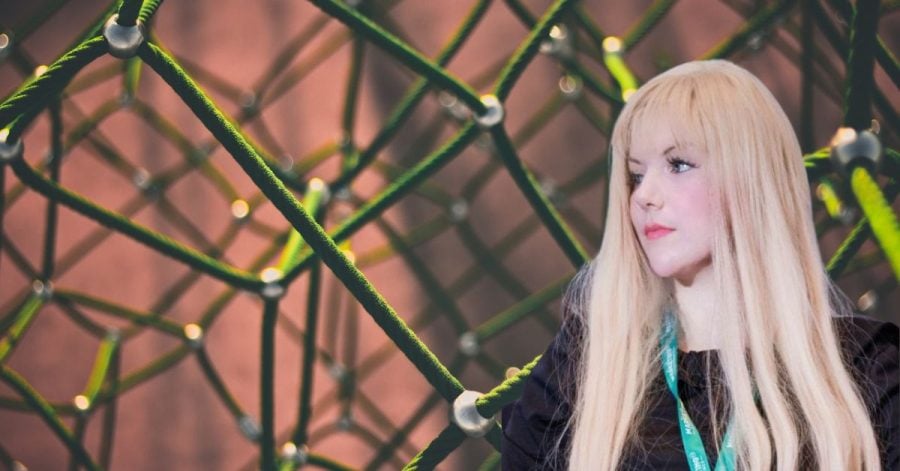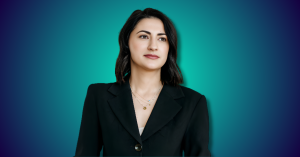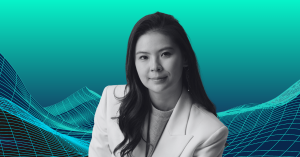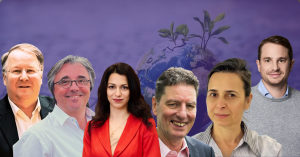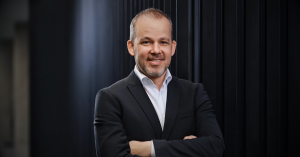With years of experience in the blockchain industry, serial entrepreneur Vilma Mattila is now on a mission to make blockchain more sustainable. Lawyer turned venture capitalist, Mattila has incubated more than 60 blockchain projects and serves as an advisor at organizations such as the World Future Society and the EU Blockchain Observatory.
Mattila is also a part of the founding team of 5ire, the Indian unicorn and one of the fastest growing carbon neutral blockchain with smart contracts and ESG ranking services. Through 5ire, Mattila is encouraging global companies and brands to take up the sustainable approach and reap the benefits that are out there.
The Recursive caught up with the Finnish entrepreneur during the Web Summit 2022 and discussed the many roles that she currently has, as well as her goals as an angel investor.
The Recursive: There is a lot of prejudice when it comes to blockchain with all the carbon emissions that it’s going to cause. To what extent can these prejudices be avoided and you can apply blockchain also for sustainability projects?
Vilma Mattila, Founder of 5ire: The first way to fix it is of course from the consensus itself. Because right now the consensus is based on who uses most electricity is able to mine Bitcoin, and that’s not how it should be, there should be a different type of consensus mechanism.
So in our case, consensus is based on the activity of the nodes, or the activity of the computers, which means that you don’t need any external hardware, which also eliminates the problem of cooling the hardware, because cooling uses a lot of electricity – even almost more than the production itself.
So I think that if we talk about, for example Bitcoin, there could be a repurposing of electricity. There are many people that use the heat for vegetable farming, or they repurpose the heat for other uses, or they use water hydropower, they use wind power, or solar power.
In those cases, of course, it’s not a high environmental impact and doesn’t produce that much carbon footprint. However, to neutralize the zero in the case of blockchain, they could possibly use electricity that is currently wasted and not being used, because actually there is more electricity being wasted every day than being used all the way – from IoT devices to blue lights to industrial electricity.
There have been cases where they repurpose the electricity for the usage of Bitcoin, so how can we completely neutralize this? I think that this will be possible in the next five to 10 years, with 90% probability due to the fact that as this is a very early industry and there hasn’t been innovation that much in terms of tackling the core challenge.
However, from changing the consensus to repurposing, to restructuring the way that the businesses are currently operating, I believe that in five years, at least 30 to 40% of the whole mining, as well as digital currency production could be completely carbon neutral.
How does 5ire fit into this?
At 5ire we are currently already carbon negative. In addition, we pay companies for taking a sustainable approach. So for example, we rank companies on how sustainable they are. If Coca Cola right now takes an approach to move from electricity to hydropower, and they are our client, we will reward them.
So in the Bitcoin network, they reward who uses more electricity. In our case, we have around 1000 companies that are hosting our network, and we pay the transaction fees to those that are more sustainable.
How do we define what’s sustainable? It’s according to the United Nations 17 SDG goals. So, from there we verify if a company is taking action or they are not taking action, because if you go to speak with them, they will not know how much impact they are generating, nor if they are generating any results. They will know that we are taking action towards sustainability, but nobody’s measuring the result.
Which industries do you believe would benefit the most from your solution at this point?
We think banking and money transfer, specifically in countries and regions such as Indonesia, India, Asia, Pacific, Latin America. First of all, because they don’t have ATM networks, there is no infrastructure, it would be extremely expensive to build the infrastructure in remote areas, etc.
And still in Asia, there are 4 billion people, out of which 1 billion people don’t have access to identity, nor access to money. We believe that we can directly impact these individuals by giving them digital identity, and through that access to banking, access to credit, access to ownership of the land.
Because right now they cannot verify that they own the land, which means that they cannot go to the bank and ask for a loan, like we can in the Western world. We recently had a pilot project in Nigeria, and now there are people who are able to verify through the land registry that they own this land, and they can get credit.
Do you believe Web3 will be as disruptive for the banking sector and financial services just like Web2 was a couple of years ago?
I definitely do believe that it’s very impactful due to the fact that most of the people who need banking services don’t have access to physical banking. And if you’re talking about Fintech, most of them don’t have identity, so they cannot even register into Fintech applications.
And they can use Web3 despite having government issued identity. Even if they are immigrants for example, they can get direct access to money.
So I believe it will benefit most of those who have never used a bank account, nor have credit cards – they will jump directly from nothing to Web3.
In terms of monetary transfers, I think the amount will be much higher in Web3 due to the fact that if for example, you are selling services, and let’s say it’s oil and gas, it’s very troublesome if you need to send it in tranches, as well as very troublesome if you are sending for a transaction. from high inflation countries such as Argentina or Venezuela, or even Brazil or Kenya, because there’s sometimes a 20 to 40% fee between small national currencies. And if they swap into USD, it’s too complex, and if you are not operating in the eight major currencies, it is too complex to do cross-border transactions.
As an angel investor, what kind of challenges do you see solved by the founders that you invest in?
I would say that 60% of my investments are in the blockchain space. 40% are either in digital identity, or verification, banking or payment processing. I often invest in technologies that give accessibility starting from the user interface to everybody who doesn’t know anything about blockchain or coding.
Because if I’m making a call, I don’t need to know how these technologies work. So I invest in tools that you don’t know that they are using Blockchain, in solutions that speed up the network so that people can operate faster.
Let’s say I mostly invest into emerging markets where the problems are very expensive. You’re not going to wait for half an hour for the transfer or for your coffee to go through. So, I invest in the improvement of technology, as well as into women-driven technologies, for example.
There are segments of society where there’s a lack of financial education for women, lack of tools for developers in certain segments of industry, for people of color. People are looking over Africa and not realizing the size of opportunities.
In this sense, is there a challenge that you would like to see solved by a blockchain solution or a Web3 solution in the space of sustainability that is still not there?
I think this would be the traceability of what is actually organic or sustainable, because nowadays it looks like everybody puts their stamp on it and there is no aggregated authority on the traceability. What is the source of it and where is this coming from.
There is this issue even for the fuel for electric cars. For example, the batteries in electric cars – it can be slightly questionable about how environmental they are, based on what happens to them at the end of their life.

